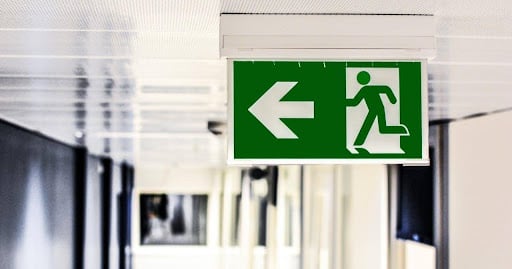
Health and safety compliance is as much a part of running a business in the UK, as the core operation itself. You’ll have to make sure employees and customers are looked after. But small businesses often face unique challenges in maintaining compliance with these regulations.
Health and Safety law does not require someone to actually have been harmed but the risk of harm may be enough to trigger an investigation and potential criminal prosecution.
So, what are the common compliance challenges?
Limited Resources
Across the board, small businesses often operate with tight budgets and limited staffing. This makes it hard to allocate the right resources to the right areas in general. And often when you’re trying to keep the wheels moving, vital health and safety measures can be left behind. Larger companies might have dedicated staff, but small businesses can struggle to keep up with the demands and changes in compliance, increasing the risk of workplace accidents and gaps in important knowledge and processes.
Running a small business involves wearing many hats and juggling many responsibilities. Owners may find themselves prioritising other tasks over safety measures, not realising the potential consequences. Neglecting health and safety can lead to serious accidents, legal trouble, and damage to the business’s reputation.
Lack of Expertise
Following Health and Safety regulations is compulsory, and small business owners may lack the necessary knowledge to fully understand and implement them. What’s more they will unlikely have the time to understand them fully. Although unintentional, this non-compliance exposes the business to potential fines or legal action. Moreover, without proper understanding, critical safety measures designed to prevent accidents can easily get overlooked. While small business owners would never want an accident to happen, in this environment an accident still might occur.
Complex and Changing Regulations
Health and Safety regulations are often detailed and hugely industry-specific, making it even more challenging for business owners to fully understand which rules apply to them.
The main legislation is the Health and Safety at Work Act 1975. Industries such as construction work or working with dangerous substances or materials such as asbestos will have their own specified regulations.
The law sets out the duties employees, and including the self-employed, have to themselves and to each other.
Providing regular and up-to-date health and safety training to employees is also a legal requirement in the UK. And without the proper training, employees will be unaware of potential hazards or the correct procedures to follow.
The Consequences of Not Complying
In the UK Health and Safety Law may is enforced by the Health and Safety Executive and/or the Local Authority.
It’s the law that all employers must manage and control risks in the workplace, not just have the paperwork in place or a poster in the kitchen.
Non-compliance is a criminal offence, and if you’re found in breach of the regulations you may be given verbal or written advice, be issued an improvement notice or prohibition notice. In the worst examples you can be prosecuted.
Fines of up to £20,000 are common, while in serious cases the fine has no limit. Company directors can also face disqualification for up to 15 years.
If you run a small (or any size) business, it’s worth seeking professional advice about your HSE responsibilities. If you’re facing prosecution, you need legal advice immediately, preferably from specialist lawyers, such as these solicitors in Ipswich.
Overcoming These Compliance Challenges
One solution is to partner with external consultants or services that specialise in health and safety compliance. This offers access to expert advice and support, ensuring they meet legal requirements. This solution prevents potential fines and reduces the risk of accidents.
The Health and Safety Executive (HSE) also offers free online resources, templates, and guidance that small businesses can use. They provide step-by-step instructions and practical advice, making it easier for business owners to understand and implement safety measures.
A small business should focus on the most important elements of health and safety relevant to their industry. Address the biggest compliance issues first and ensure that essential safety measures are in place.
Regular risk assessments are good for finding and addressing potential hazards too. Small businesses should also encourage employees to participate in safety training and report potential hazards.
Final Thoughts
Despite the challenges, there are practical steps that any small business owner can take to ensure they meet their legal obligations. By looking at safety measures, training and resources, you can protect your employees, avoid legal problems, and create a safer work environment.
